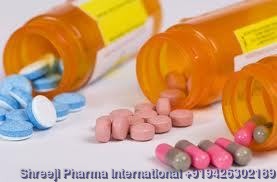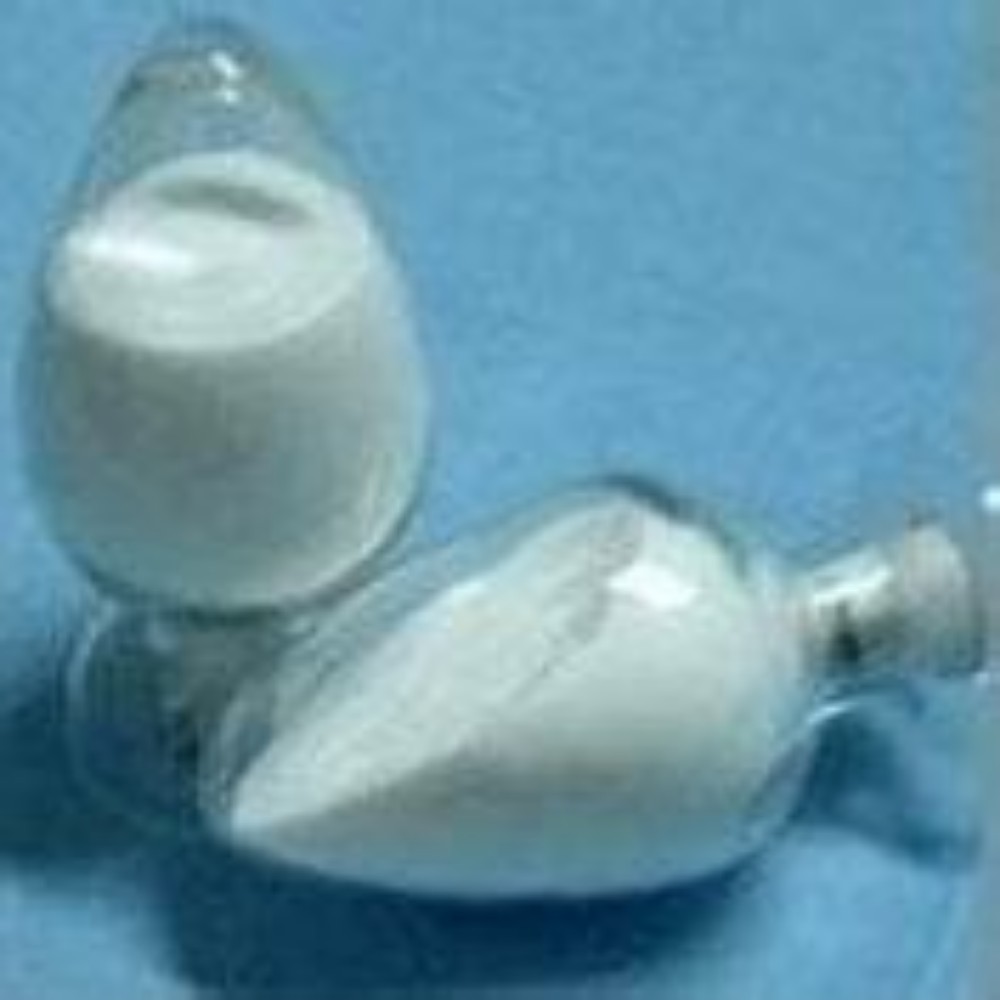Bisacodyl .
Product Details:
- HS Code 30049039
- Molecular Formula C22H19NO4
- Molecular Weight 361.39 GSM (gm/2)
- Taste Odorless
- Solubility Bisacodyl powder is practically insoluble in water but soluble in organic solvents like acetone, chloroform, and benzene. It is also slightly soluble in alcohol and ether.
- Smell No Smell
- Storage Room Temperature
- Click to View more
Bisacodyl . Price And Quantity
- 25 Kilograms
- 6800.0 INR/Kilograms
Bisacodyl . Product Specifications
- 603-50-9
- 130 C and 135 C
- Bisacodyl
- 3 Years
- Pharmaceutical Intermediates
- 4-{[4-(acetyloxy)phenyl](pyridin-2-yl)methyl}phenyl acetate
- Bisacodyl is used on a short-term basis to treat constipation. It also is used to empty the bowels before surgery and certain medical procedures.
- Medicine Grade
- C22H19NO4
- 361.39 GSM (gm/2)
- 30049039
- White or almost white, crystalline powder.
- 138 C
- Solid
- 98%
- Odorless
- Bisacodyl powder is practically insoluble in water but soluble in organic solvents like acetone, chloroform, and benzene. It is also slightly soluble in alcohol and ether.
- No Smell
- Room Temperature
Bisacodyl . Trade Information
- MUMBAI
- Cash Advance (CA), Cash Against Delivery (CAD), Cash in Advance (CID), Delivery Point (DP), Letter of Credit at Sight (Sight L/C), Telegraphic Transfer (T/T), Letter of Credit (L/C)
- 1000 Kilograms Per Day
- 7 Days
- No
- Free samples are available
- DRUM & BAG PACKING
- Asia, Australia, Central America, North America, South America, Eastern Europe, Western Europe, Middle East, Africa
- WE PROVIDES ALL KIND OF CERTIFICATIONS AS YOU REQUIRED.
Product Description
Bisacodyl is used on a short-term basis to treat constipation as well as used to empty the bowels before surgery. This drug is a stimulant laxative that is used for treating the condition of constipation. It is also used to clean out the intestines before any bowel examination or surgery. This drug work by increasing the movement of the intestines that helps the stool to come out. The dosage of Bisacodyl is taken by mouth as directed by your doctor. The prescribed dose of this drug depends on your age, medical condition, and response to treatment.
Since its introduction in the market in 1952, Bisacodyl has been used to treat constipation as a diphenyl methane laxative. In recent months, it has been used to facilitate bowel evacuation before investigations (e.g. colonoscopy, barium enema) or surgery.
How does it work:
A short-term treatment for constipation is bisacodyl. Additionally, it's used to remove waste from bowel prior to surgery and medical procedures. A stimulant laxative is a kind of medication called bisacodyl. It causes a bowel movement by increasing intestinal activity.
Applications Or where it is used:
Constipation is treated with bisacodyl. The procedure may also be used to cleanse out intestines prior to bowel exams or surgery. This stimulant laxative works by stimulating the bowels. By moving the intestines more easily, it facilitates stool removal.
Manufacturing process:
The bisacodyl derivative is triphenylmethane. It first became popular as a laxative in 1953 due to its structural similarity to phenolphthalein.
How to use:
The tablet form of Bisacodyl is for oral consumption. Most people take it the night before a bowel movement. Normal bowel movement occurs in 6-12 hours after taking bisacodyl. Taking bisacodyl for more than 1 week without consulting your doctor is not recommended.
Dosage of usage:
Oral:
- TABLET: 5 to 15 mg orally once a day as needed
- Duration of therapy: Up to 1 week
Side effects:
The most common side effects of bisacodyl are:
- Excessive diarrhea
- Nausea
- Rectal burning
- Abdominal cramping
- Electrolyte and fluid imbalance
- Spinning sensation (vertigo)
- Stomach/abdominal pain
- Vomiting
Warnings and precautions while using this product:
This condition can cause stomach/abdominal pain or cramping, nausea, diarrhea, or weakness. Do not hesitate to tell your doctor or pharmacist if any of these effects persist or worsen. Remember that your doctor may have determined that the benefits to you are greater than potential side effects if he or she has prescribed this medication.

Price:
- 50
- 100
- 200
- 250
- 500
- 1000+















 : nilesh.sheth70
: nilesh.sheth70
